Liu Xiaobo: Censored by China, supporters take to social media
- Published
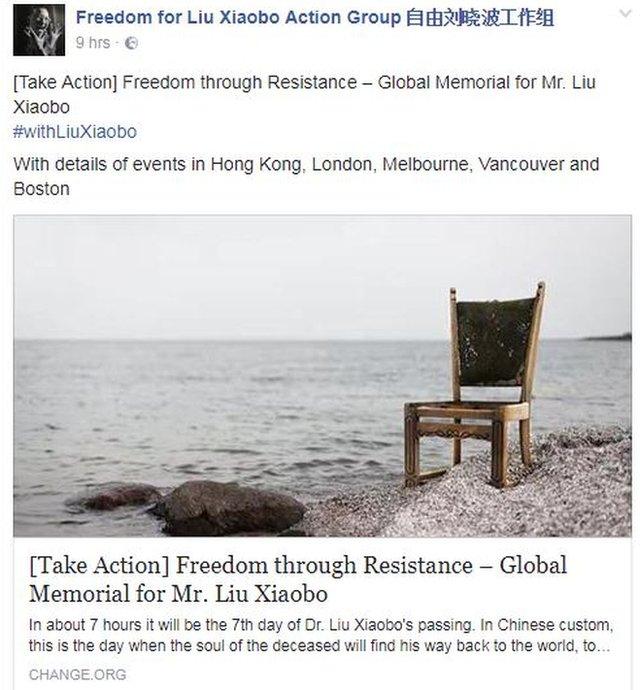
An empty chair by the seashore has become a memorial symbol for Liu Xiaobo online
A social media movement - styled as a "global memorial" - has been launched to mourn and commemorate the loss of Nobel Peace Prize laureate and Chinese democracy activist Liu Xiaobo.
On Facebook, Twitter and Instagram, supporters are posting pictures of an empty chair next to the sea with the hashtag #withliuxiaobo.
At 17:35 Beijing time (09:35 GMT) on Wednesday, and even shortly beforehand, people around the world began posting the photos of a single chair placed by the sea.
One person whose Instagram account name is Chi_Yuen_Lam posted what looked like an antique chair on a seashore with the words, "Salute to the true hero #withliuxiaobo"
Another called submarine_vintage posted on Instagram a picture of a small plastic toy chair with plastic flowers, next to what appeared to be a Hong Kong harbour.
Others shared pictures of themselves raising three fingers to symbolise resistance, freedom and hope.
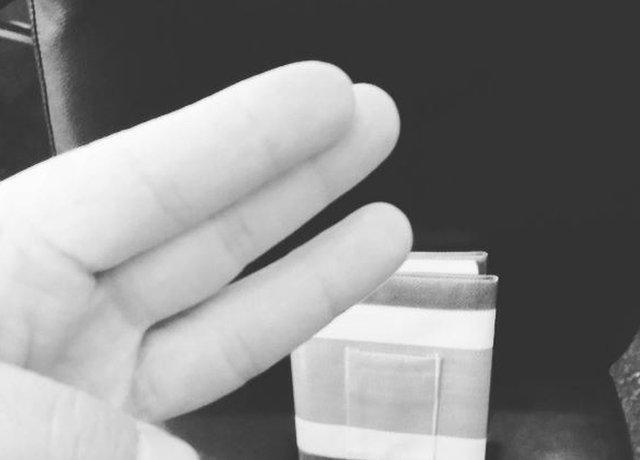
The three raised fingers symbolise resistance, freedom and hope
Hayumi Chun Wing Li, a Hong Kong woman, posted a picture of her holding up three fingers over a chair with a book on it on Wednesday.
She told the BBC later: "I took the picture today because I knew today was his seventh [day since he died]. I would like to take this opportunity to thank him for making significant contributions to freedom, democracy and hope.
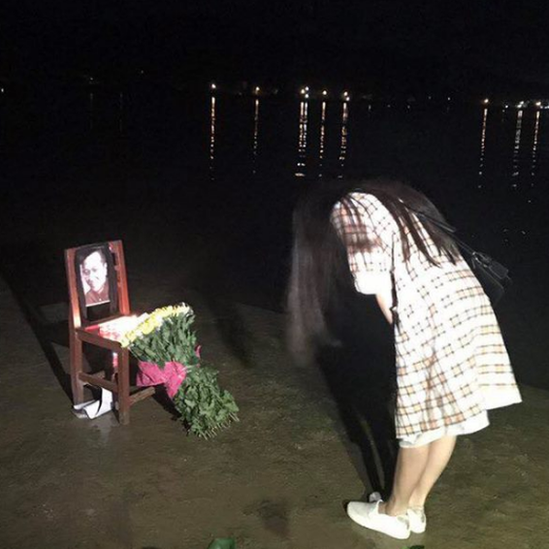
Some people posted from mainland China - despite the risks of arrest. A man who placed flowers and candles shaped like a heart by the sea and posted a video online has been detained for questioning, said the organiser of the social media campaign to commemorate Liu - the Freedom for Liu Xiaobo Action Group.
The empty chair theme is modelled after the chair left vacant for Liu by the Nobel Committee in 2010 when it awarded him the Nobel Peace Prize "for his long and non-violent struggle for fundamental human rights in China".
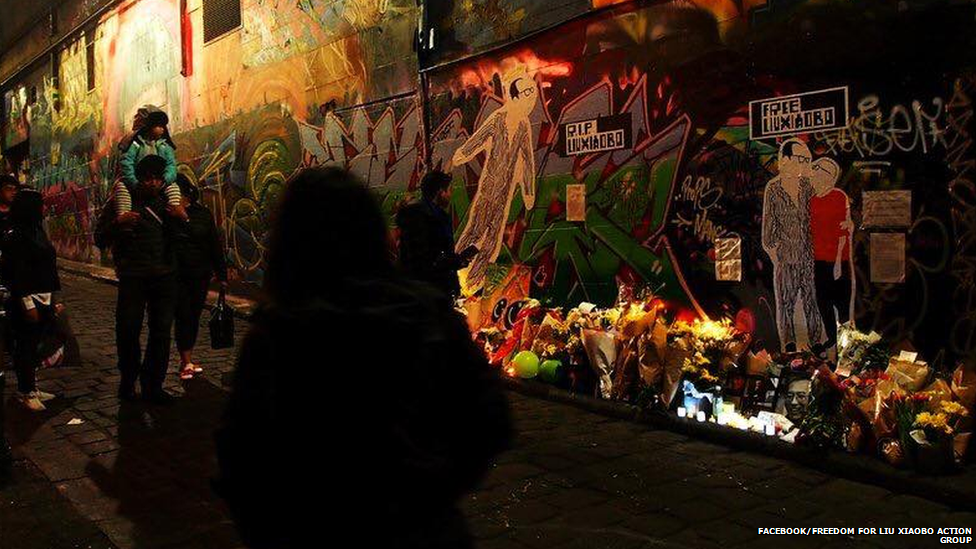
Liu was imprisoned at the time and was not allowed to attend the awards ceremony in Oslo, Norway.
The campaign is aimed at showing that the world will not forget Liu, even though the Chinese government wishes it would.
The Chinese authorities cremated Liu's body on 15 July, just two days after his death from multiple organ failure, which followed a battle with liver cancer. The authorities reportedly pressured his family to scatter his ashes into the sea to avoid commemorative activities by not allowing a funeral or a gravesite.
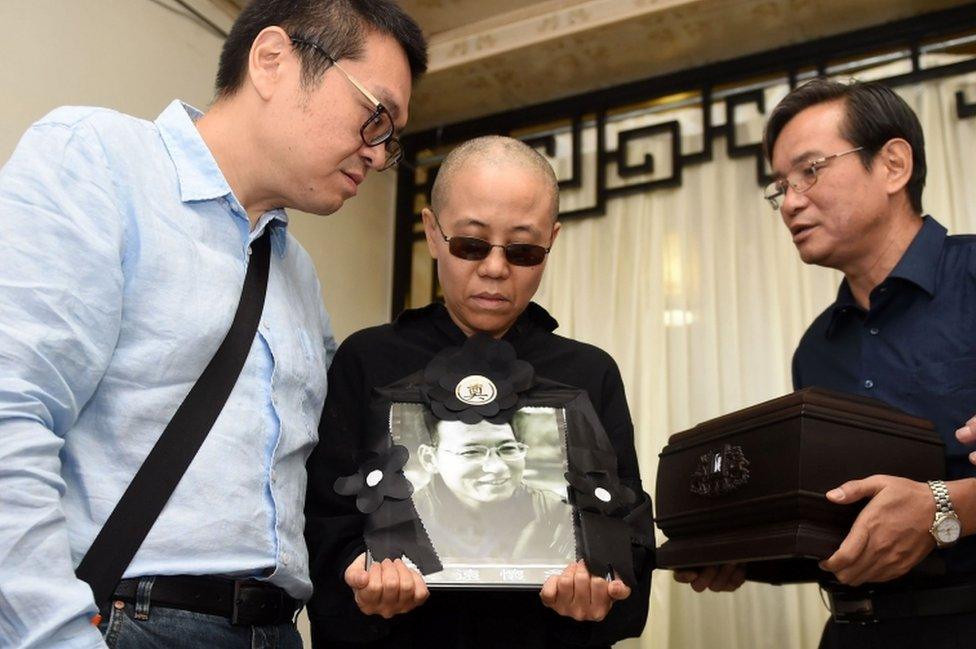
Liu Xiaobo's wife Liu Xia (C) and his brother, Liu Xiaoguang (L), held a portrait of Liu Xiaobo as they received his ashes (R) in an urn
Liu was serving an 11-year prison sentence for being one of the key authors of Charter 08, which he helped to draft in 2008, calling for sweeping political reforms in China.
The authorities only revealed days before his death that he was suffering from late stage liver cancer and refused his family's request for him to be allowed to leave China to seek medical treatment overseas.
The social media commemoration movement officially began at 17:35, the beginning of the seventh day after Liu's death last Thursday at 17:35.
According to traditional Chinese beliefs, the soul of the deceased returns to the living world to bid his final farewell on the seventh day. The body is not supposed to be buried or cremated until this day has passed.
"Yet the Chinese authorities have denied Dr Liu the respect he deserved, forcing the family to make do with a hastily-arranged and secretive sea burial, and preventing friends from coming and saying their goodbye," the movement's organiser said in a Facebook post.
"And they even dare to blame it on local customs, when Chinese customs is nothing of that sort. As such it is up to us, friends and supporters of Dr Liu Xiaobo, to give him the proper farewell he deserved."
Vigils have also been organised on Wednesday in several cities including London, Hong Kong, and Melbourne. Some of them are being held outside Chinese embassies.
Searches under the hashtag and a similar one in Chinese turned up no results on Wechat, a social media platform operated out of mainland China. Posts with the activist's name on them are state media or government rebuttals of global criticism against the state's treatment of Liu.
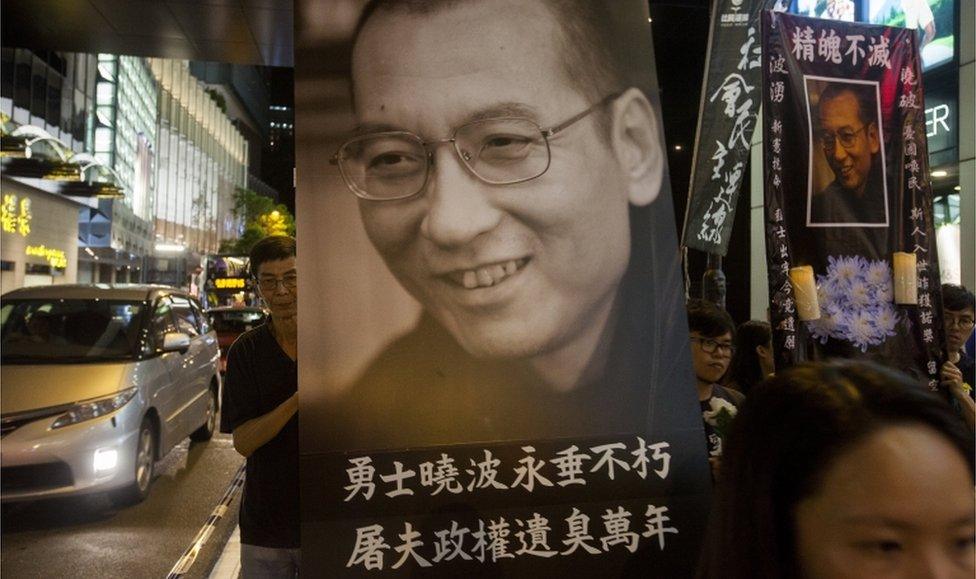
Memorials and protests have been held around the world since Liu died - including this one on 15 July in Hong Kong
Meanwhile, well-known dissidents such as Hu Jia are under surveillance by Chinese authorities, with some called out for "tea" (mandatory meetings) with public security officers, the organisers said.
But a few people in mainland Chinese managed to post photos of an empty chair on Facebook - showing that despite the censors, some people are aware of who he is, and what he stood for.
One such man's picture included a sign on the chair that said: "Mourning Liu Xiaobo - Oppose political persecution."
- Published13 July 2017
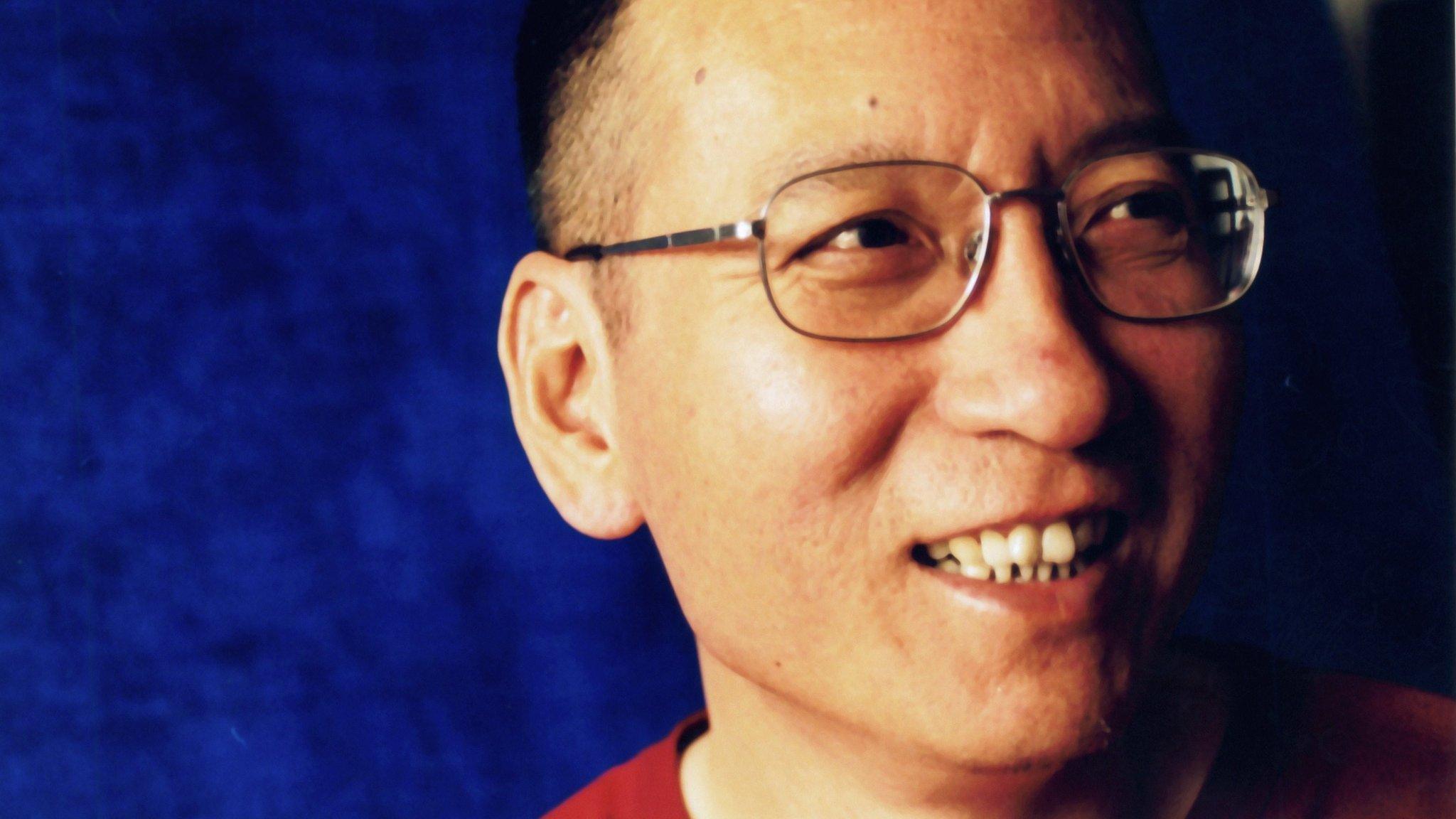
- Published13 July 2017
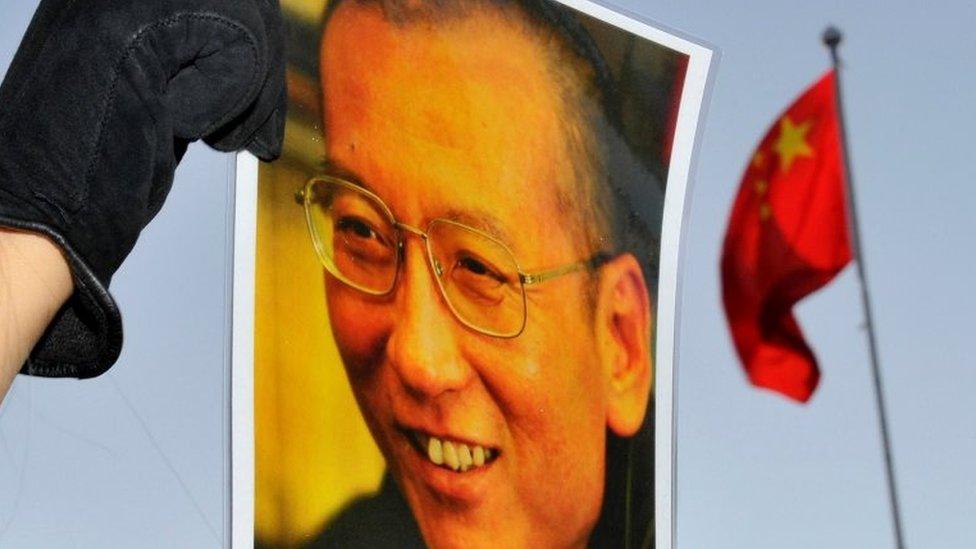
- Published14 January 2014
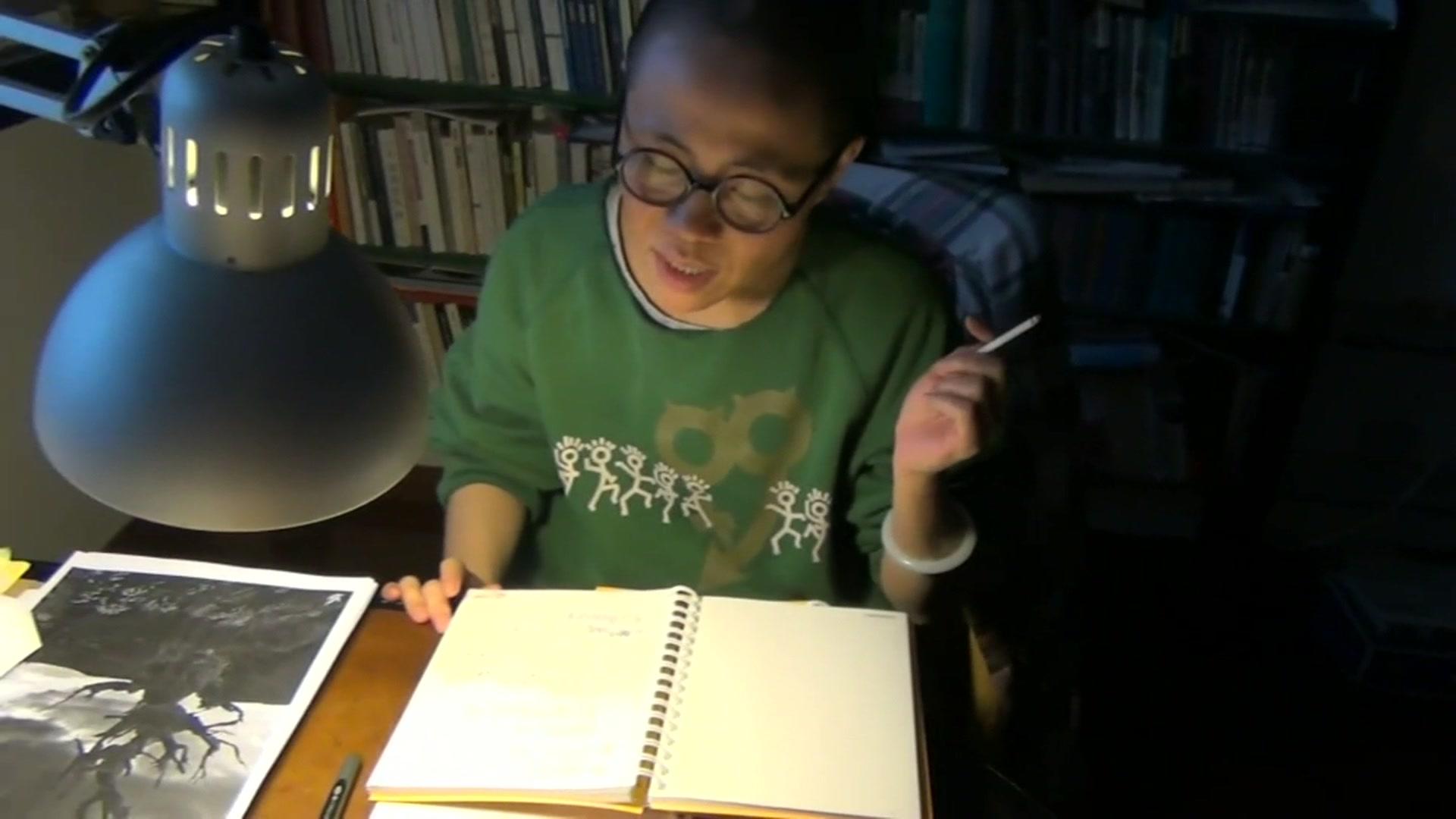
- Published12 October 2012
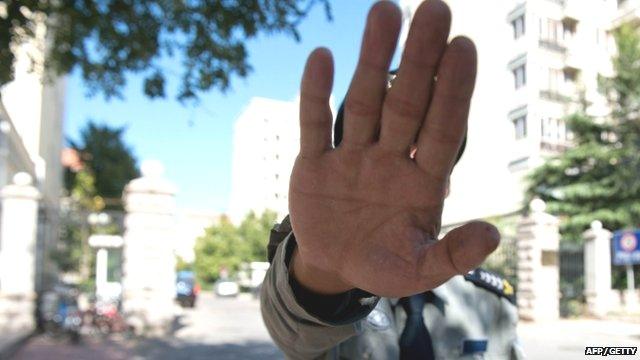
- Published9 December 2010
- Published10 December 2010